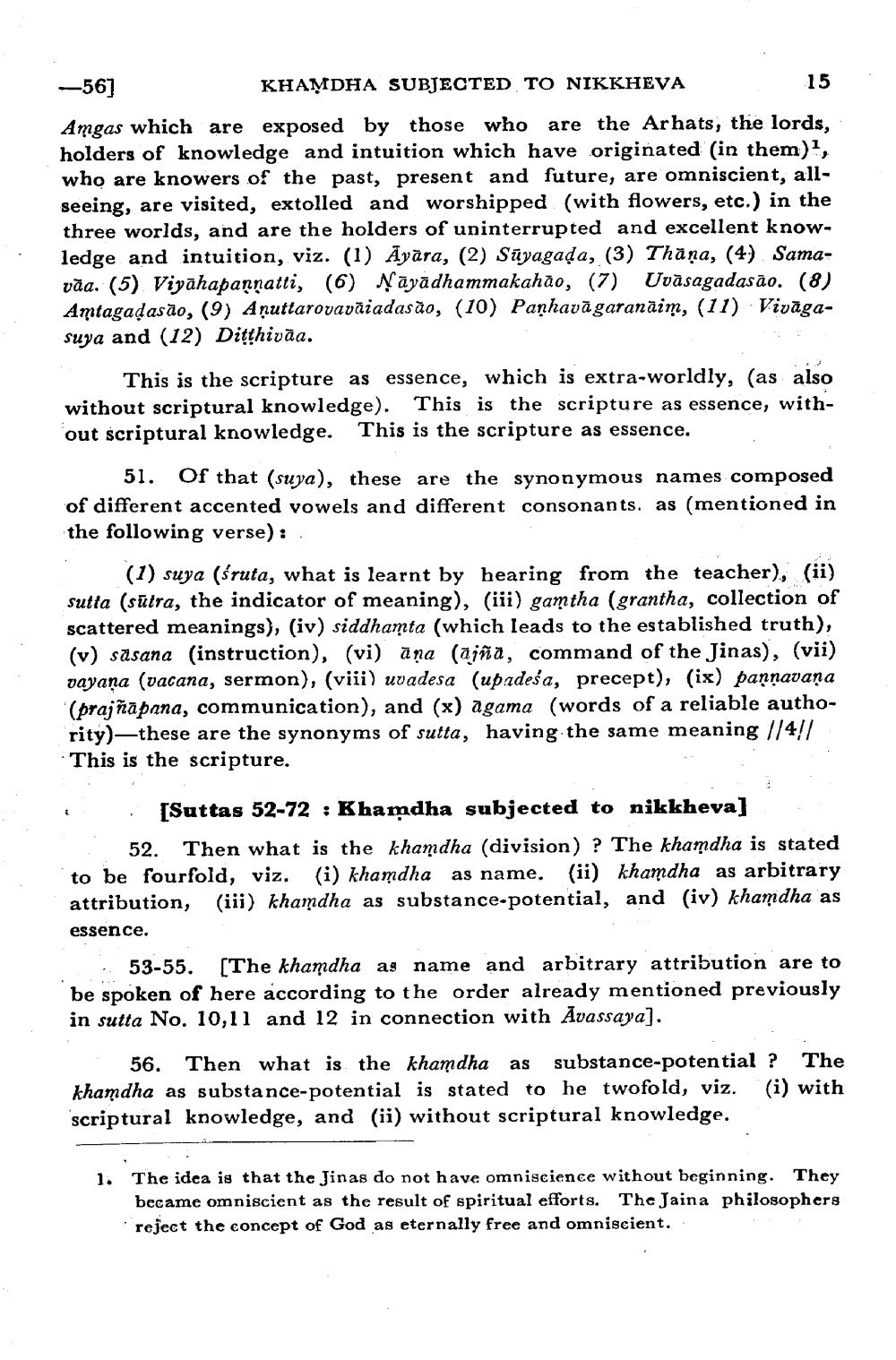________________
-56]
KHAMDHA SUBJECTED TO NIKKHEVA
Amgas which are exposed by those who are the Arhats, the lords, holders of knowledge and intuition which have originated (in them)1, who are knowers of the past, present and future, are omniscient, allseeing, are visited, extolled and worshipped (with flowers, etc.) in the three worlds, and are the holders of uninterrupted and excellent knowledge and intuition, viz. (1) Ayāra, (2) Suyagada, (3) Thana, (4) Samavaa. (5) Viyahapannatti, (6) Nayadhammakahão, (7) Uvasagadasão. (8) Amtagaḍasão, (9) Anuttarovavaiadasão, (10) Panhavagaranaim, (11) Vivagasuya and (12) Diṭṭhivaa.
15
This is the scripture as essence, which is extra-worldly, (as also without scriptural knowledge). This is the scripture as essence, without scriptural knowledge. This is the scripture as essence.
51. Of that (suya), these are the synonymous names composed of different accented vowels and different consonants. as (mentioned in the following verse):
(1) suya (śruta, what is learnt by hearing from the teacher), (ii) sutta (sutra, the indicator of meaning), (iii) gamtha (grantha, collection of scattered meanings), (iv) siddhamta (which leads to the established truth), (v) sasana (instruction), (vi) aņa (ajña, command of the Jinas), (vii) vayana (vacana, sermon), (viii) uvadesa (upadesa, precept), (ix) pannavana (prajñāpana, communication), and (x) agama (words of a reliable authority) these are the synonyms of sutta, having the same meaning //4// This is the scripture.
[Suttas 52-72
Khamdha subjected to nikkheva]
52. Then what is the khamdha (division)? The khamdha is stated to be fourfold, viz. (i) khamdha as name. (ii) khamdha as arbitrary attribution, (iii) khamdha as substance-potential, and (iv) khamdha as
essence.
"
53-55. [The khamdha as name and arbitrary attribution are to be spoken of here according to the order already mentioned previously in sutta No. 10,11 and 12 in connection with Avassaya].
1.
56. Then what is the khamdha as substance-potential ? The khamdha as substance-potential is stated to he twofold, viz. (i) with scriptural knowledge, and (ii) without scriptural knowledge.
The idea is that the Jinas do not have omniscience without beginning. They became omniscient as the result of spiritual efforts. The Jaina philosophers reject the concept of God as eternally free and omniscient.




